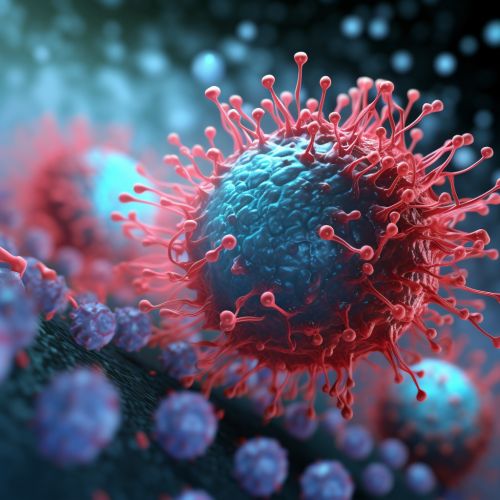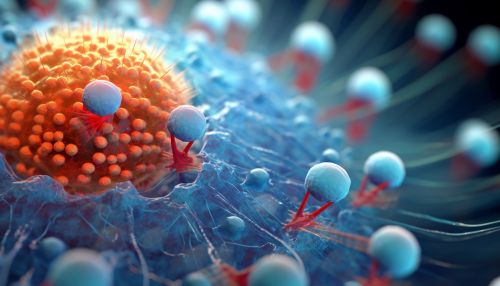Somatic hypermutation
Introduction
Somatic hypermutation (SHM) is a biological process that occurs in the immune system, specifically in B cells. It is a part of the immune response that leads to the production of antibodies with a high affinity for antigens. This process involves the introduction of mutations at a high rate into the variable regions of immunoglobulin genes. The mutations increase the diversity of the B cell receptor (BCR) repertoire, allowing the immune system to respond to a wide range of antigens read more.
Mechanism of Somatic Hypermutation
The process of somatic hypermutation is initiated when a B cell is activated by an antigen. This activation triggers the expression of an enzyme known as activation-induced cytidine deaminase (AID) read more. AID deaminates cytosine residues in DNA to uracil, which can then be recognized and processed by various DNA repair pathways. This results in the introduction of point mutations at a high rate in the variable regions of the immunoglobulin genes.


Role in Immune Response
The primary role of somatic hypermutation is to increase the diversity of the B cell receptor repertoire. This diversity allows the immune system to respond to a wide range of antigens. The mutations introduced by SHM can lead to the production of BCRs with a higher affinity for the antigen. B cells with these high-affinity BCRs are then selected for proliferation and differentiation into plasma cells and memory B cells read more, read more. This process is known as affinity maturation.
Clinical Significance
Somatic hypermutation plays a crucial role in the immune response, and defects in this process can lead to immunodeficiency or autoimmunity. For example, individuals with Hyper-IgM syndrome, a rare genetic disorder, have a defect in the AID gene, leading to impaired SHM and a reduced ability to produce high-affinity antibodies read more. On the other hand, uncontrolled SHM can lead to the production of autoantibodies, contributing to the development of autoimmune diseases such as systemic lupus erythematosus read more.
